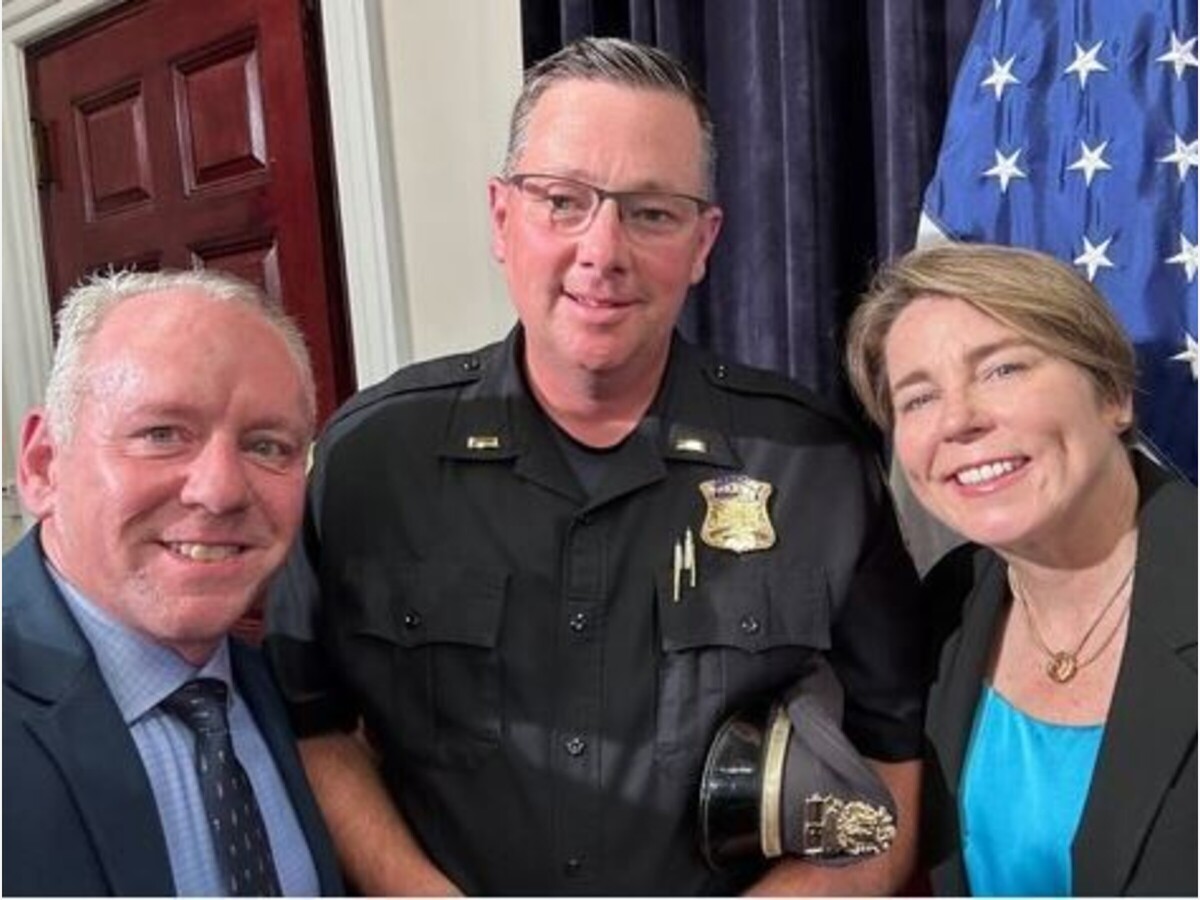Image

Above, State Rep. Jeff Roy, FPD Lt. Jason Reilly, and Governor Healey.
Massachusetts on Thursday became the 49th state to prohibit revenge pornography (South Carolina is the only remaining state without such a law), with Gov. Maura Healey signing a bill that also cracks down on sexual harassment and coercive control by domestic abusers.
The bill closes a legal loophole to prohibit sharing sexually explicit images and videos without a subject's consent; creates a new diversion and education program for adolescents who engage in sexting; explicitly bans artificially generated material purporting to depict a real person in a sexually explicit manner, often called "deepfakes," and expands the definition of criminal abuse to include "coercive control."
Survivors and victims' rights advocates say revenge porn has grown common in the digital age, subjecting people -- particularly women -- to social and emotional harm often inflicted by former romantic partners.
The new law also addresses teen sexting provisions from a bill filed by State Representative Jeffrey N. Roy (D-Franklin). Rep. Roy worked with Franklin Police Lt. Jason Reilly for several years to make these changes to the law. Currently, minors who possess, purchase, or share explicit photos of themselves or other minors are charged with violating Massachusetts child pornography laws and are required to register as sex offenders. The legislation signed today instead authorizes commitment to the Department of Youth Services (DYS), but also allows minors to be diverted to an educational program in lieu of criminal punishment. A district attorney, however, is allowed to petition the court to bring criminal charges in extreme cases.
A Roy-sponsored bill passed the House in 2022 but later died before it could be signed into law.
Lawmakers tried again to crack down on revenge porn last year, but senators didn't leave themselves enough time in the end-of-session push to close a loophole in state law that makes prosecution of revenge porn cases nearly impossible.
Part of the problem, reform advocates say, is a 2005 Supreme Judicial Court ruling that made it difficult for prosecutors to pursue charges unless three or more incidents took place.
"As a former attorney general, and a prosecutor, and now as governor, we know that there have been gaps involved in policy in this area," Gov. Maura Healey said at a press conference Thursday before signing the legislation into law.
“This legislation represents a coordinated effort and a holistic approach to address an increasingly prevalent behavior and provides mechanisms to protect individuals victimized by those who threaten, intimidate, and harass the subjects of these images,” said Roy, a lead sponsor of the bill. “The sexting provisions provide law enforcement officers with a middle ground that will allow them to educate kids about the consequences of their actions without ruining their lives. It will have a tremendous impact on people who have become entangled in the web and transmittal of images that can cause traumatic and lifetime harm through a diversion program that will educate them about the legal and personal consequences of this behavior.”
Katelynn Spencer, an advocate and survivor, told her story Thursday of discovering that sexual videos of her had been posted without her consent to pornography websites. The videos, one of which she didn't know had been taken, had been on the internet since 2012, she said, though she didn't find out about it until 2020.
"It's been all over many different websites with millions of views. Right away I knew I wanted justice. But then I discovered there was no law in Massachusetts to protect me," Spencer said. "Though I did try to charge my exploiter, my case was dismissed."
The bill was signed into law years after it was first introduced to lawmakers.
"The bill has been in the making for so long; since before I found out I was exploited," Spencer said. "I can finally now say I have justice because this bill is going to help so many people."
Spencer and Shaquera Robinson, a domestic abuse survivor who founded the Together Rising Against Coercion Coalition and Shaquera's Story Domestic Violence Consulting and Coaching, held each other and cried after Healey scrawled her name across the legislation.
Lt. Reilly was present for the signing on Thursday.